Today is Outdoor Classroom Day in the UK and Ireland. To celebrate, here is the second in our series of short films to give you a taste of life in Nepal. It's playtime at the Deusa AFRC!
Scenes from Nepal: Volleyball in Durlunga
Working with Nature
It is truly amazing what can happen when you work with nature. This story is told beautifully in George Monbiot's book Feral. Working with nature is a fundamental principle at the heart of TGT projects.
Click the image below to watch this brilliant short video on our facebook page.
Five solutions for Soil Erosion in Nepal
Soil Erosion is a huge problem in Nepal and one of the world's least talked about, but most pressing environmental concerns. According to the UN's Food and Agriculture Organisation, there may only be enough soil for 60 more harvests.
Many of our projects centre around education and awareness raising. This is most commonly done through Farmer Field Schools run by our partner organisations. Soil erosion and how to prevent it, has to be a covered in any awareness raising and training activity.
Here's a short video from SAKNepal offering up five low cost solutions:
It's the Ice Stupa.
We had a really interesting conversation with Dr Steven Palmer from Exeter University this morning. He told us about the amazing Ice Stupa project happening in Ladakh, in the far north of India.
It is a really simple concept for alleviating water stress in the arid upland plateaus. An Ice Stupa is like a haystack of ice, but a lot bigger, about the size of a three storey house. You make one by piping melt water from glaciers in the late winter down to village level. The water is then sprayed into the below freezing night time air. As it settles it freezes to form an Ice Stupa. This stupa can then be tapped for water over the spring and early summer months when water stress is at its most challengeing.
This is Climate Change adaptation at its innovative best and exactly the sort of project The Glacier Trust wants to support. Dr. Palmer discussed potential locations that might benefit from this in Nepal. We're definitely adding it to our list of 'future projects', we would love to work with Exeter University and The Ice Stupa Project to fund some action-research into its suitability in Nepal. Please contact us if this is something you would be interested in helping us to fund.
Photo credit: Ice Stupa Project - The early development of an Ice Stupa in Ladakh.
Irrigation scheme installed in Durlunga
This week we received a report from our partners HICODEF who we are working with in the Deurali district. Deurali is in Newalparasi in the south of Nepal.
This year we are funding the construction of a brand new irrigation scheme to feed the village of Durlunga in the uplands of Deurali. HICODEF have sent us these photos of the construction process.
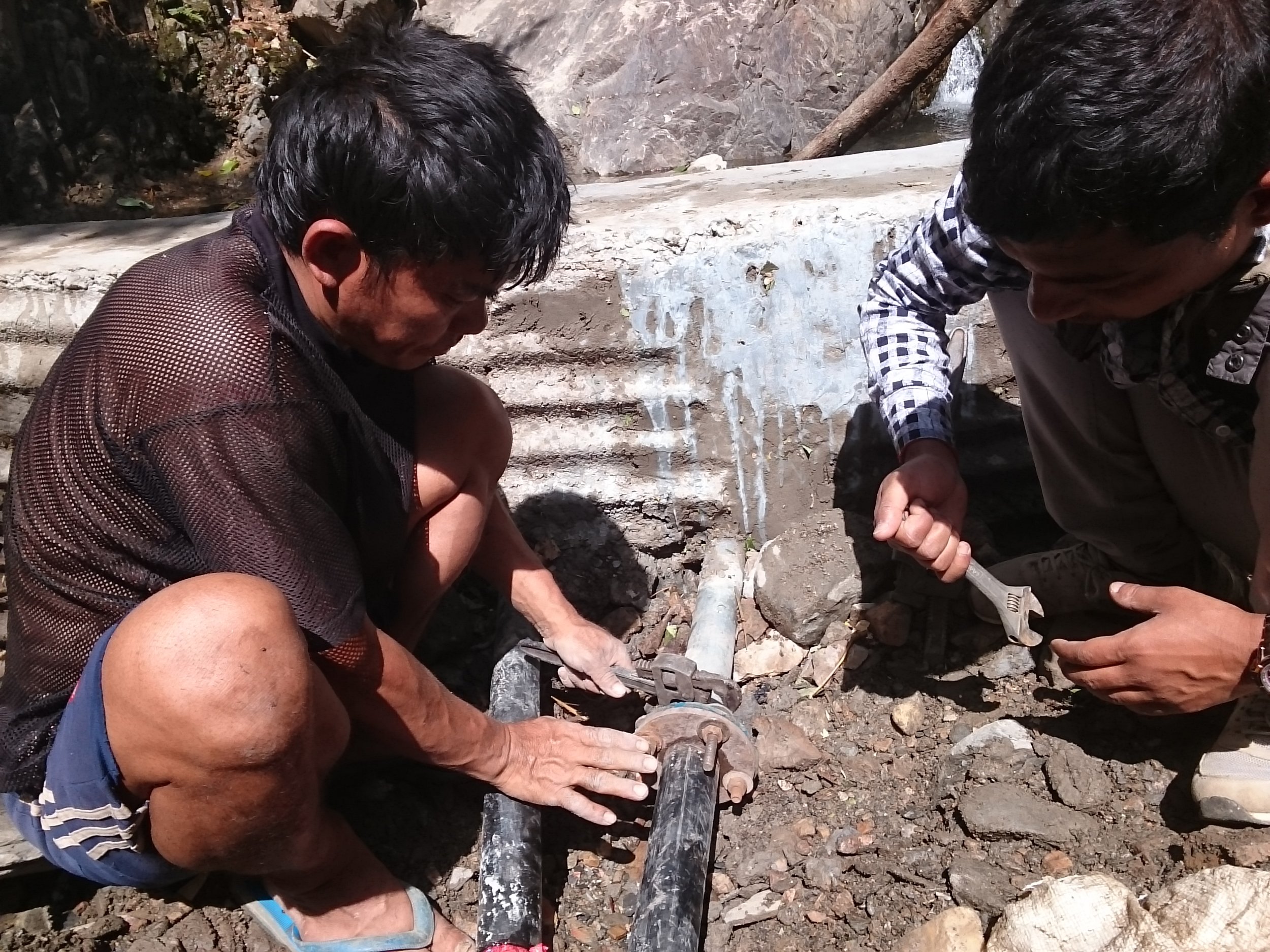
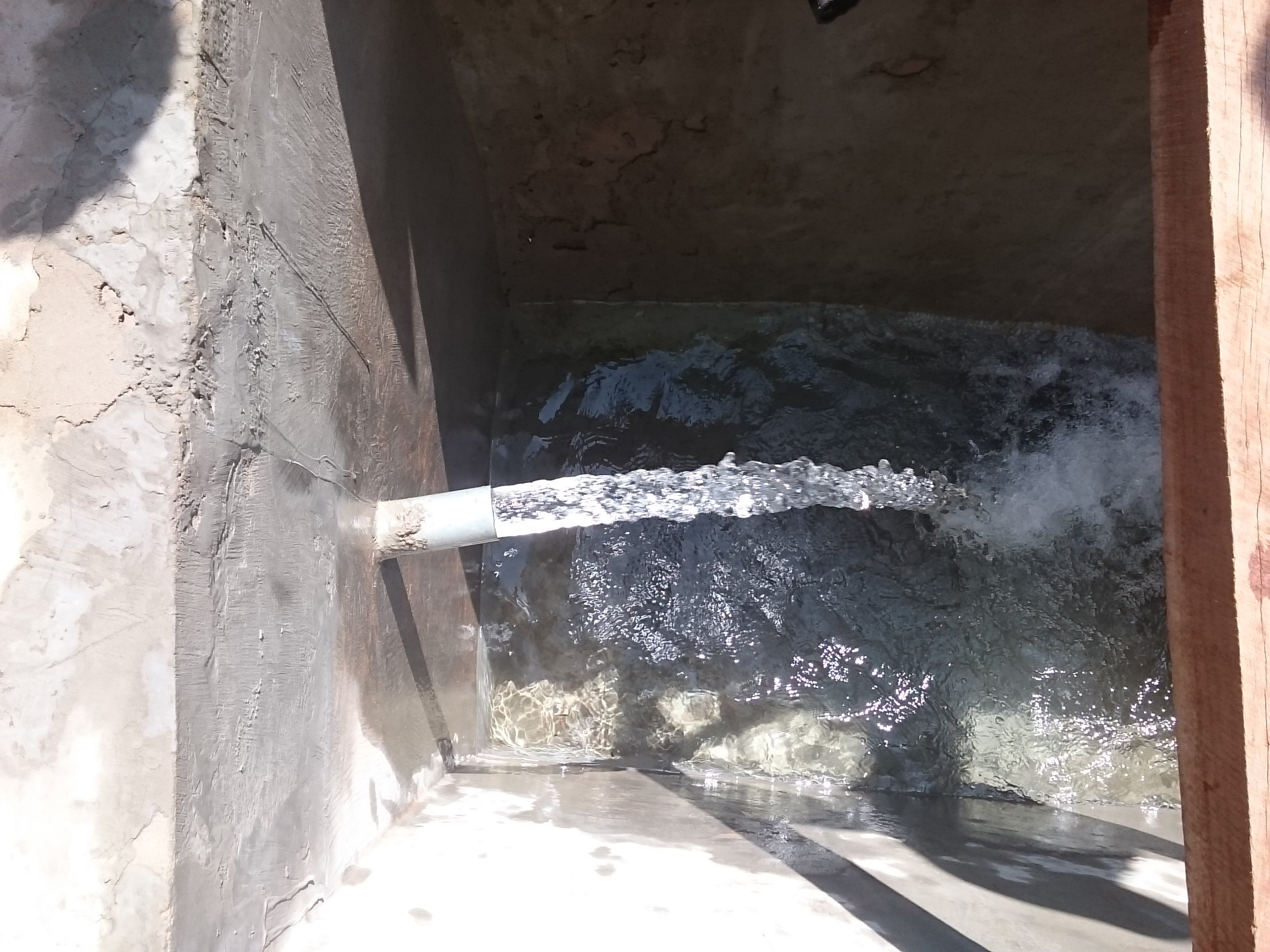
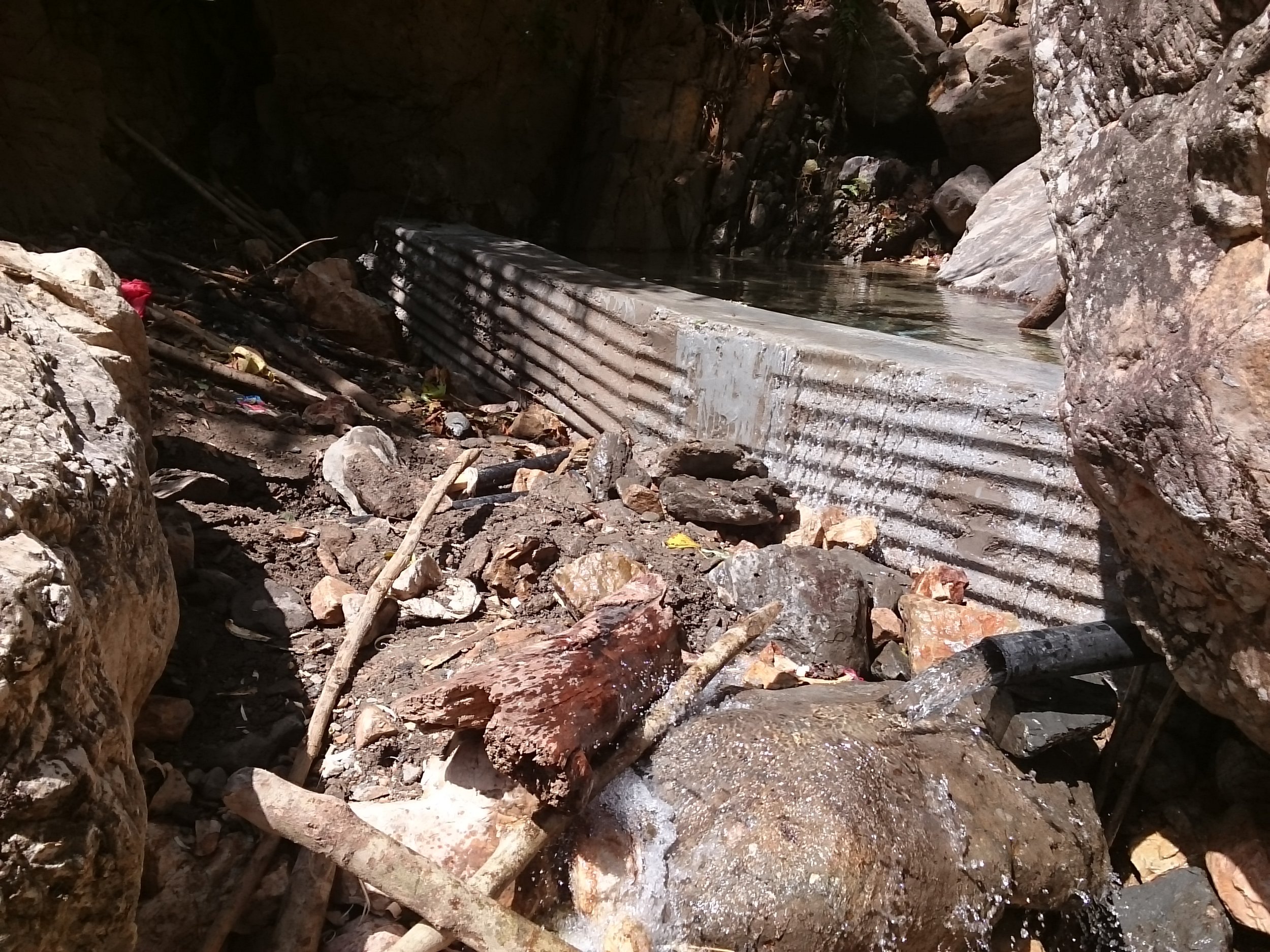
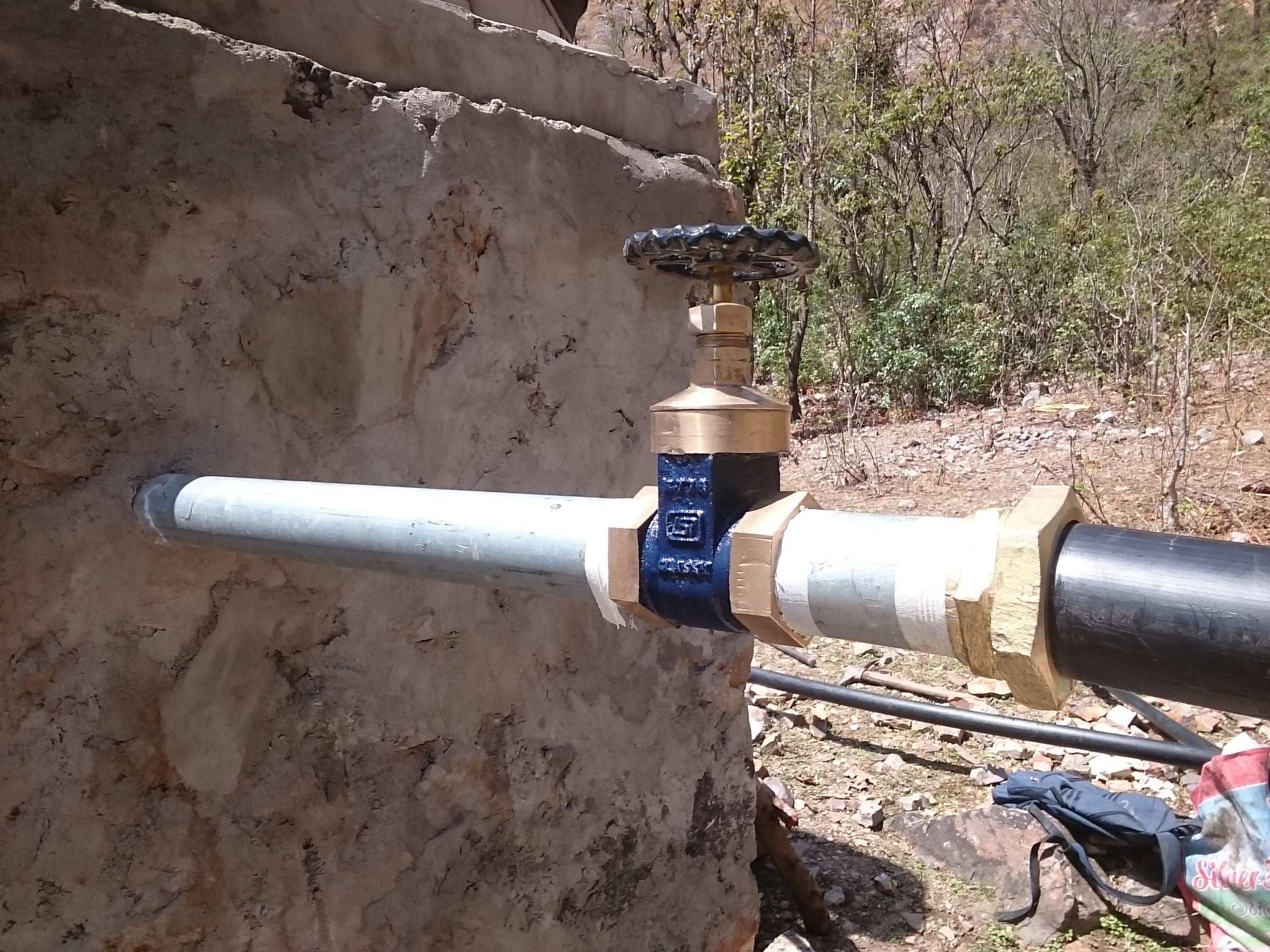
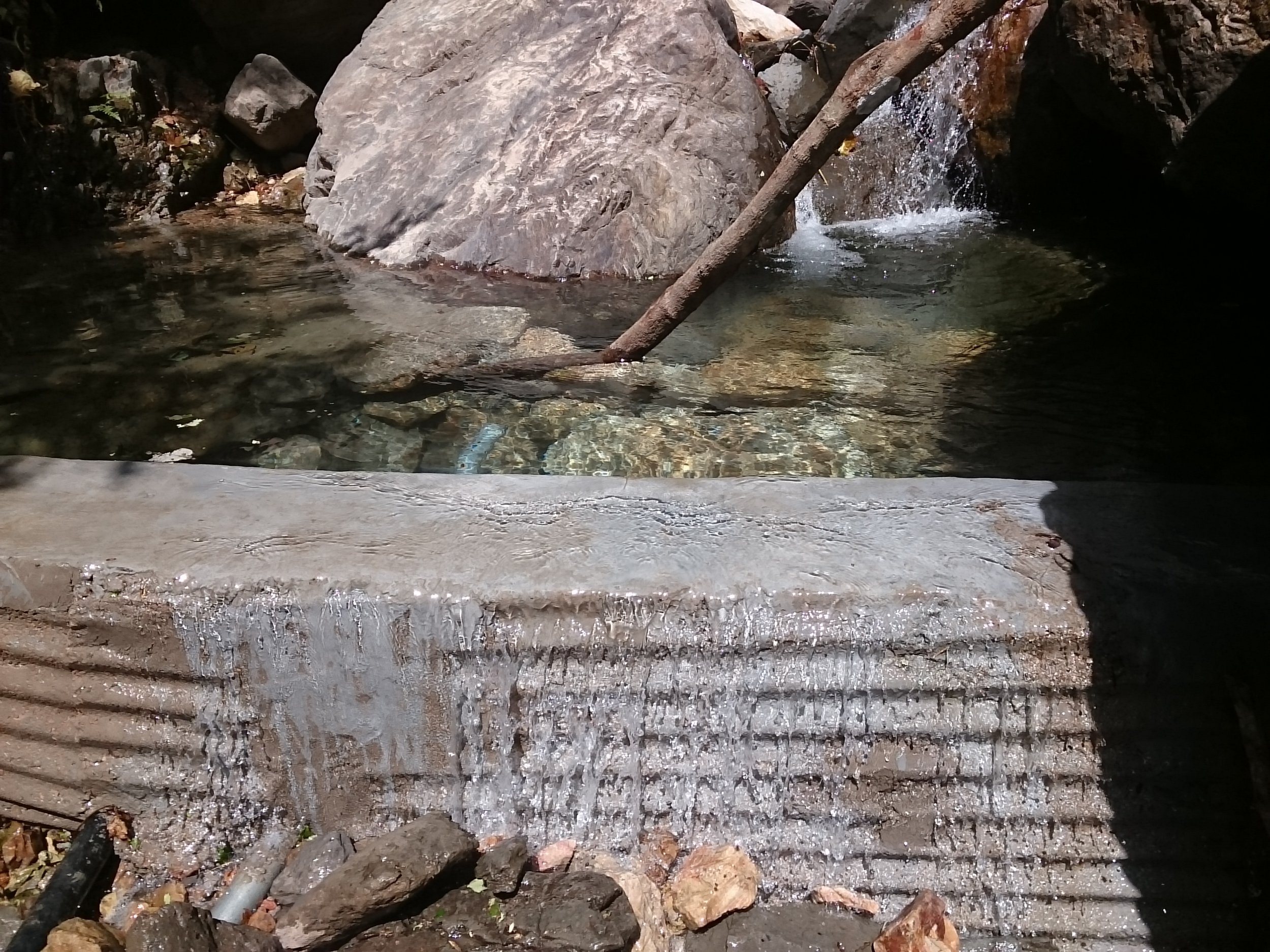
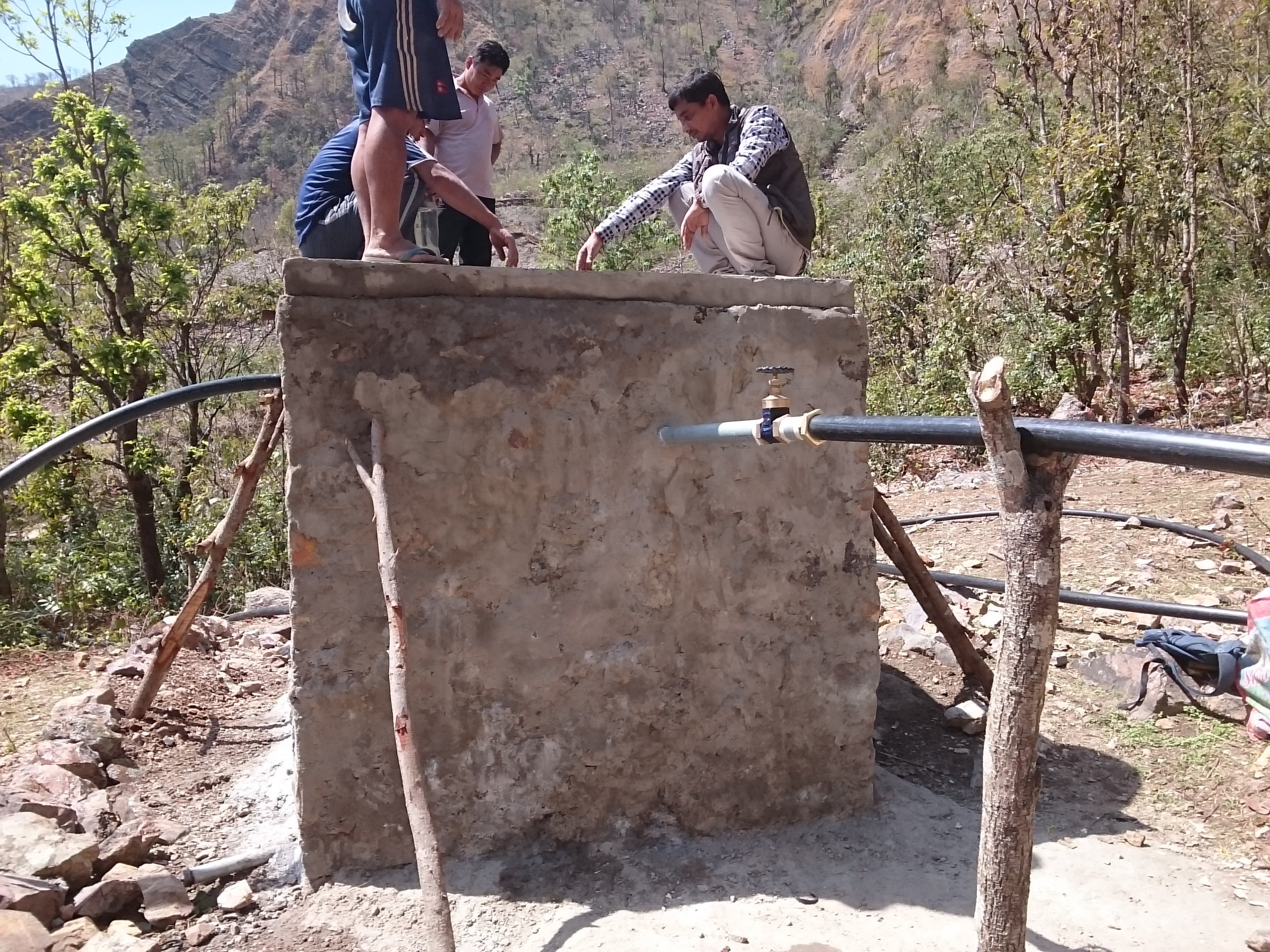
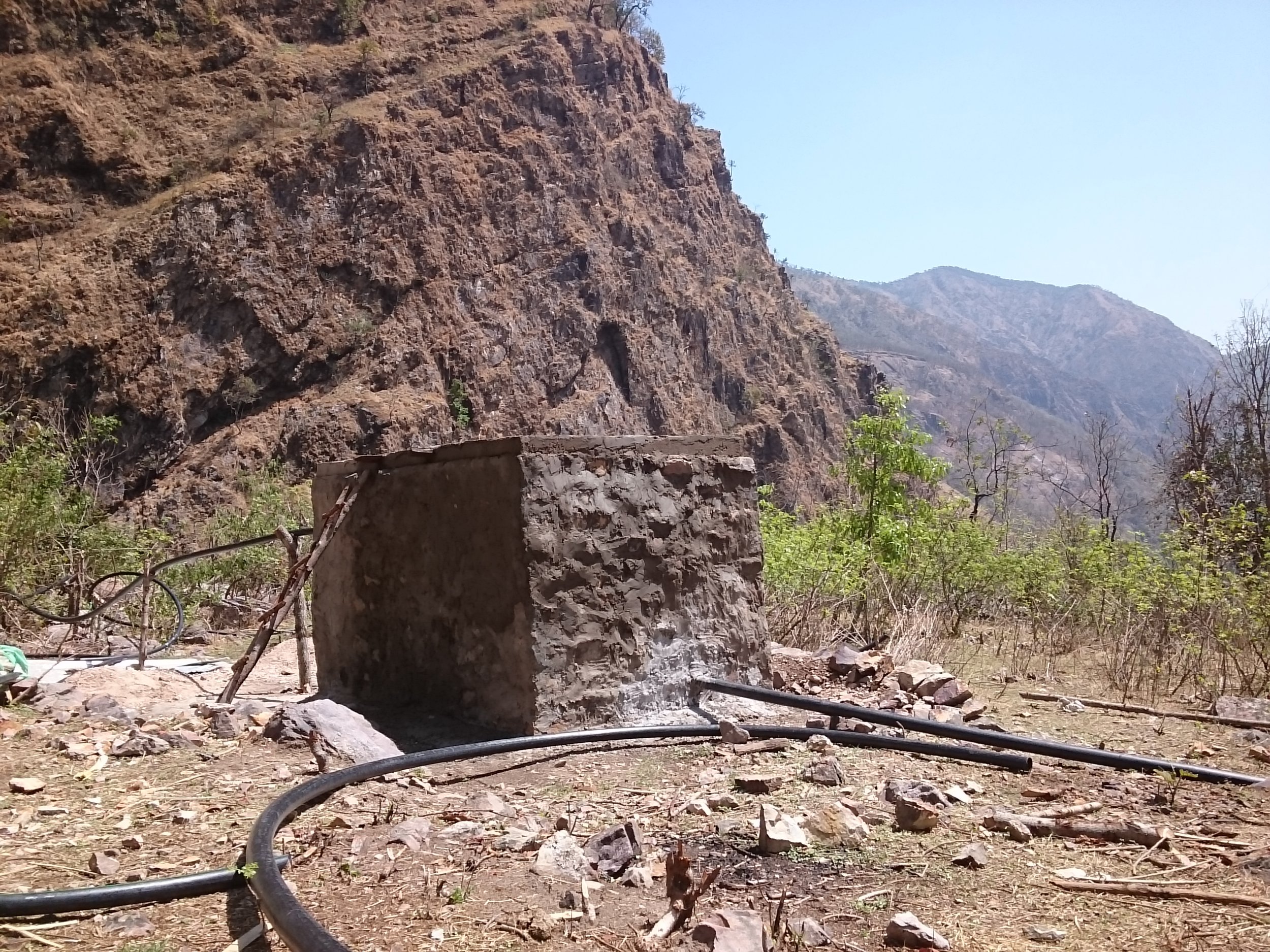
The irrigation scheme will bring huge benefits to this community. Thanks to our support farmers in Deurali are already learning new agricultural techniques and growing crops of tomatoes, potatoes and broom grass to sell in local markets. The new water supply will make a huge difference in 2017/18.
Please help us to continue our work in Deurali by making a donation today.
You are never too young to take action on Climate Change
CC by 2.0. AFP Photo / Indian Army. A flood damaged road in Uttarakhand, Northern Indian.
Ridhima Pandey is from Uttarakhand, just west of Nepal in India's Himalayan region. She is nine years old. Last week she filed a lawsuit against the Indian Government for its failure to take action on Climate Change. Uttarakhand suffers many of the same problems as the communities our work supports in neighbouring Nepal: flash floods, landslides, insect pest infestations and heavy rain storms. Climate Change is exacerbating these problems and will continue to. Even at nine years of age Ridhima understands this and is calling on the Indian Government to honour pledges made in the UNFCCC Paris Agreement to limit the impacts.
One way to 'adapt' to the impacts of Climate Change is to leave these remote areas, but this is not really adaptation at all, it is fleeing and a painful last resort. When people leave remote, rural areas they most commonly head to the city. Kathmandu, Nepal's capital, like many cities in neighbouring India and China, is growing and with that growth comes overcrowding, air pollution and severe health problems. In a globalised world, the opportunities to migrate for work and study are fantastic things and we would never want to deny young people like Ridhima these opportunities. But, we desperately need to ensure they also have the opportunity to make a living in the remote communities they call home. The Himalayas are littered with thousands of abandoned villages, it is tragic and avoidable.
Genuine adaptation to climate change is possible and achievable, The Glacier Trust and our partners in Nepal are proving this. Thanks to our work, families are able to remain in the villages that have been their homes for generations. In some instances, our interventions have encouraged people to return to farm their land. We are helping them to nurture and improve it making it more fertile, productive and resilient. By enabling farmers to grow cash crops in a sustainable and organic way, our work is creating economic possibilities. This, we hope, will secure a future for the next generation.
We strongly support lobbying efforts like Ridhima's, but are not relying on national government's and UN bodies to turn their words into deeds. In a world of Trumpian politics it feels like a very high stakes gamble. Our focus is on the urgent need to take action now to secure the future of remote mountain communities. With your help we can do even more.
Ride for Team TGT
We have secured five spots on this year's Velo Birmingham, an amazing 100 mile closed road cycling event on September 24th 2017.
General entries are sold out. The only way you can now join 15,000 other cyclists for this amazing event is to ride for a charity. We are very excited to give you this opportunity!
Full details and a registration form can be found on our events page.
Go #TeamTGT!











